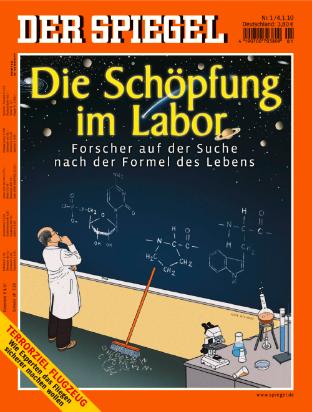Team:Bielefeld-Germany/Public relations Summary
From 2011.igem.org


Motivation and Summary for our Human Practice Advance
While developing our project idea, we were already integrating biosafety aspects in our blueprint and came up with the idea of cell-free biosensors. Besides higher durability and more specific signals, cell-free biosensors have the significant advantage that for the application and production all GMOs stay in the controlled environment of the lab. All cells are grown under controlled conditions and only qualified personnel have access to them. This minimizes the risk of releasing GMOs into the environment and therefore the possibility of horizontal gene transfer.
We got an expert expert view on cell-free biosensors concerning technology assessment, biosafety and the embedment in the current discussions about synthetic biology by [http://www.tab-beim-bundestag.de/en/about-tab/staff.html#Sauter-Arnold Dr. Arnold Sauter] from the [http://www.tab-beim-bundestag.de/en/index.html Office of Technology Assessment at the German Bundestag (TAB)].
In Germany there is an ongoing debate about synthetic biology and iGEM. This discussion is often affected by concerns, skepticisms, fear and the criticism about “playing god”. Many big German newspapers published about these topics ([http://www.spiegel.de/wissenschaft/natur/0,1518,670081,00.html Der Spiegel], [http://www.tagesspiegel.de/wissen/weltausstellung-fuer-leben-vom-reissbrett/3814770.html Der Tagesspiegel], [http://www.zeit.de/2010/22/N-Biologie-Studentenwettbewerb Die Zeit]), there are even political movements which want to prevent the application of synthetic biology. These movements are for example initiating petitions with the collection of signatures against the design of synthetic organisms ([http://www.testbiotech.org/taxonomy/term/224 Testbiotech]). Even the German government had to face questions about synthetic biology and iGEM by members of the German parliament. The questions were answered by the State Secretary Dr. Helge Braun of the [http://www.bmbf.de/en/index.php Federal Ministry of Education and Research]. The abbreviated questions concerning iGEM were the following:
- What is the minimal equipment and education level needed for the participation in iGEM and is this equipment available for everyone?
- Is the German government planning a similar competition, if not why?
- From which universities are the iGEM teams coming from?
- How is the German government judging the participation of students in iGEM?
- Would it be possible to start something like iGEM in Germany?
- Is the government considering it desirable if iGEM teams work on the expression of toxic proteins and what actions are taken to prevent this?
- What are the legal possibilities to regulate the work with toxic proteins?
The answers were based on the facts or referring to common laws and there was no judging on the participation in iGEM, but this shows that synthetic biology and iGEM are part of an uprising controversial discussion. Hence we know that our work might raise public concerns and that we are always in the focus of the public opinion. This is the reason why we are pursuing an open public relations strategy. We think that only if the people are informed about synthetic biology, the discussion can be objective.
Our goals are to awake the public awareness, start public discussions and participate in the outreach about iGEM. Further we want to promote the open source principle behind iGEM, arouse interest and hopefully prevented fear when facing the principles of synthetic biology.
For our Human Practices advance we organized and participated in various events. We managed an open lab day for children, visited a local high school, presented and discussed in a science café, talked at a (PhD) Student Convention, showed our posters to an influential expert audience at the Strategic Process Biotechnology 2020+ and invited other iGEM teams to the 6th CeBiTec Symposium. We reached various people of all ages and with different educational backgrounds with the topics of synthetic biology.
In November the German Ethic Council is hosting a conference with the topic: “Workshop Life. Importance of Synthetic Biology for Science and Society”. The members of the German Ethic Council are appointed by the German president after they are proposed by the government or parliament. The mission of these experts is to convey the dialogue and advice in ethical, societal, science, medicine and legal questions as well as probable consequences of life sciences for individuals and society. As one of the experts our advisor and 2010 team member Nils Lübke is invited to the stakeholder discussion during the Ethic Council conference as the only iGEM participant. For us this is a great honor because it shows that our public relations work is appreciated and respected.
 "
"



